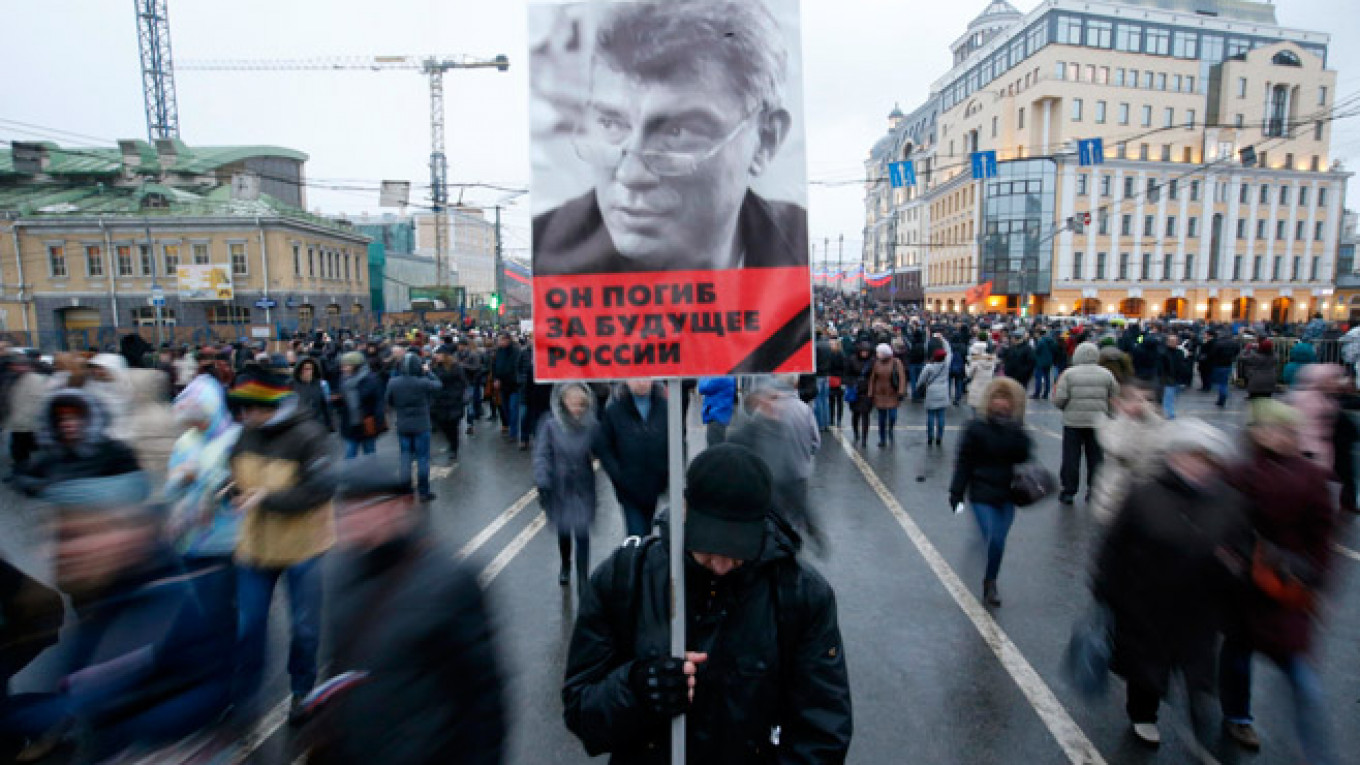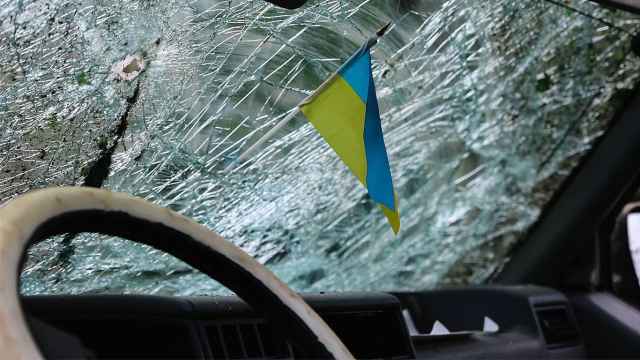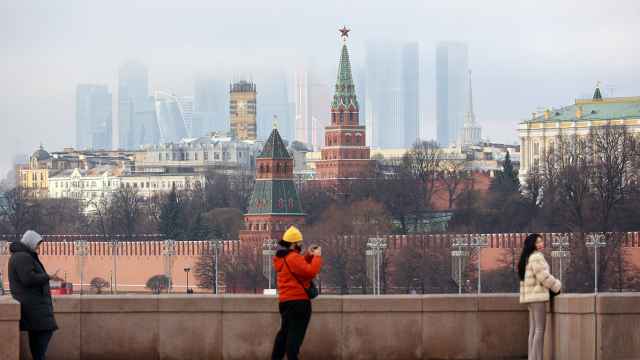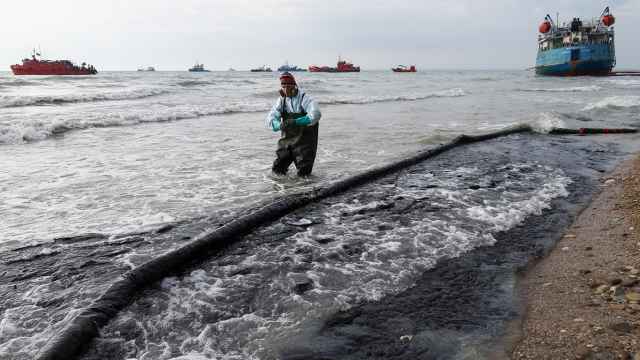Thousands of Russians marched through central Moscow on Sunday to honor slain opposition politician Boris Nemtsov in Russia's largest mass political event since the 2011-12 protest campaign. The size of the somber crowd led some to comment that if Nemtsov's brazen murder in view of the Kremlin was meant to intimidate the political opposition, it had failed.
Indeed, civil resistance scholars have long noticed how acts of shocking violence against members of nonviolent opposition movements often end up strengthening opposition movements. Famous nonviolent strategist Gene Sharp calls this counterintuitive phenomenon "political jiu-jitsu." Violent repression against nonviolent resisters can lead to shifts in opinion and then shifts in power relationships that are favorable to the nonviolent group.
Prominent historical instances of this "political jiu-jitsu" in action are many. British brutality in India, such as the beating of nonviolent activists at the Dharasana salt works and the Amritsar massacre, significantly increased Gandhi's support base. "Bloody Sunday," the shooting of nonviolent marchers in St. Petersburg in 1905, dramatically undermined the regime of Tsar Nicholas II.
So, could the recent shocking assassination of Boris Nemtsov revive the political opposition in Russia? Two factors suggest that this will not be the case.
First, the motives of Nemtsov's killer, as well as who, if anyone, ordered the hit, remain unclear. And even — especially if — the Kremlin was behind the murder, it is highly unlikely that any proof tying President Vladimir Putin to the murder will ever surface.
In many ways it does not make sense that the Kremlin would have ordered a hit on Nemtsov. Nemtsov was more of a fading "old guard" opposition figure than an up-and-coming threat such as Alexei Navalny.
Nemtsov's pending report on Russian involvement in Ukraine will likely only add to the mountain of public evidence that already exists, making it an unlikely motive for a regime-directed murder. Finally, Nemtsov's murder on a street in central Moscow is embarrassing for a regime that has based much of its legitimacy on restoring order and stability.
The Putin regime has demonstrated an ability to masterfully control public opinion. Already, the authorities and state media have been pushing a wild array of theories on who may have shot Nemtsov, from Islamic extremists to a gunman settling a business or personal dispute.
Russian officials have even floated the idea that the murder was a "provocation" aimed at destabilizing the political situation in the country. In short, it is not likely that the Kremlin will be widely blamed for the murder in Russia.
This all means that the potential galvanizing effect of the assassination for the opposition in Russia will likely be much weaker than that witnessed in some historical instances, such as those cited above. It must be clear who is responsible for repressive violence in order for "political jiu-jitsu" to operate.
Second, a nonviolent opposition movement must be in a strong position to take advantage of the backlash that violent repression can engender. To obtain this strength, an opposition movement needs to spend years building effective organizational structures, internal cohesion, bases of public support across social and geographic groups, compelling policies and a vision for tomorrow. In Russia, however, much of this is lacking, and the political opposition appears relatively weak and unorganized.
Therefore, do not expect the shocking assassination of Boris Nemtsov to revive the political opposition in Russia. His memory may bolster several opposition rallies this spring, but things will likely settle back to how they were before Nemtsov's murder soon. Except that an even darker cloud will be hanging over Russia's nonviolent opposition.
Will Wright is a political analyst and journalist focused on Eurasia.
A Message from The Moscow Times:
Dear readers,
We are facing unprecedented challenges. Russia's Prosecutor General's Office has designated The Moscow Times as an "undesirable" organization, criminalizing our work and putting our staff at risk of prosecution. This follows our earlier unjust labeling as a "foreign agent."
These actions are direct attempts to silence independent journalism in Russia. The authorities claim our work "discredits the decisions of the Russian leadership." We see things differently: we strive to provide accurate, unbiased reporting on Russia.
We, the journalists of The Moscow Times, refuse to be silenced. But to continue our work, we need your help.
Your support, no matter how small, makes a world of difference. If you can, please support us monthly starting from just $2. It's quick to set up, and every contribution makes a significant impact.
By supporting The Moscow Times, you're defending open, independent journalism in the face of repression. Thank you for standing with us.
Remind me later.






